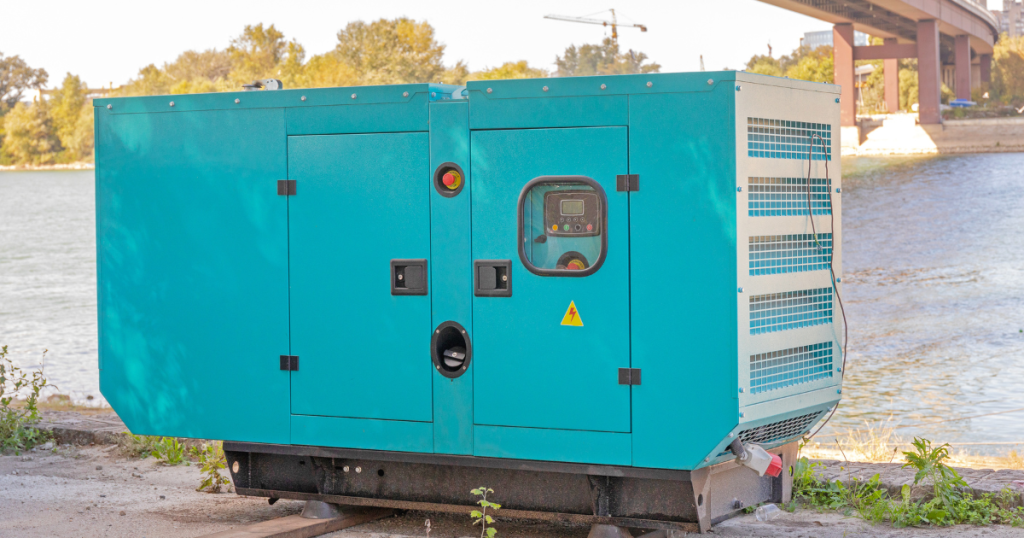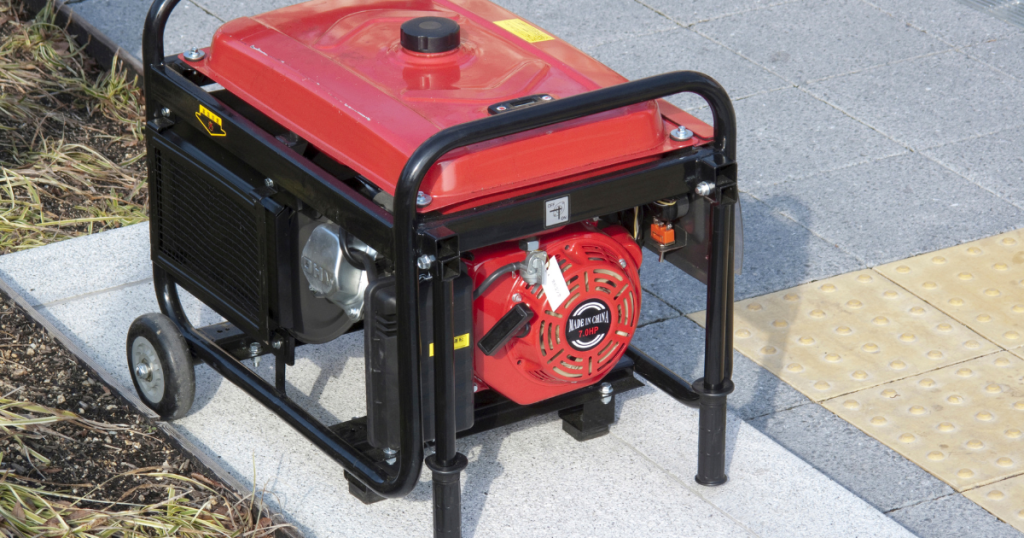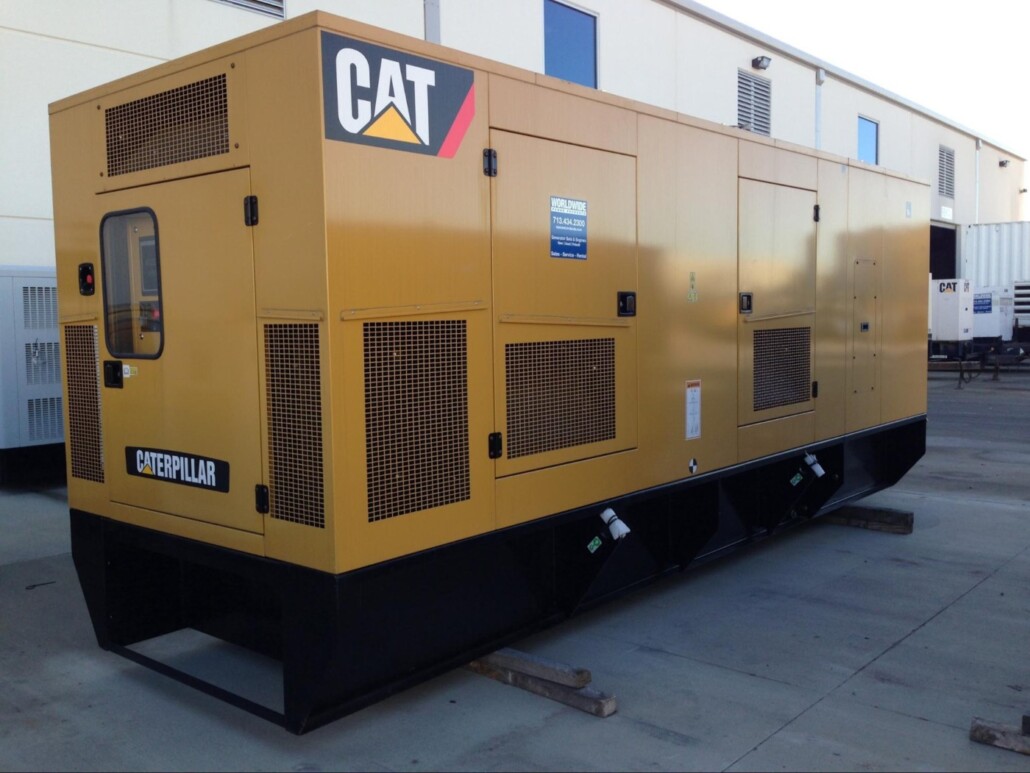Disclosure: This post contains affiliate links and I will be compensated if you make a purchase after clicking through my links. Learn More
Gas in a generator typically lasts between 6 to 12 months. Storage conditions can impact this duration significantly.
Generators are essential for backup power during emergencies. They rely on gasoline, which has a limited shelf life. Proper storage in a cool, dry place can extend gas longevity. Using a fuel stabilizer helps maintain gas quality. Regularly check and refresh the fuel to ensure optimal generator performance.
This practice prevents gum and varnish build-up in the engine. Always use fresh gasoline for the best results. Understanding gas lifespan in generators ensures reliable power when needed. Proper maintenance extends both fuel and generator life. Be prepared and keep your generator ready.

Factors Affecting Gas Longevity
The longevity of gas in a generator depends on various factors. Understanding these factors helps ensure your generator runs smoothly. Let’s explore the key elements that affect gas longevity.
Type Of Gasoline
The type of gasoline significantly impacts how long it lasts in your generator. There are three main types:
- Regular Unleaded Gasoline: This is the most common type. It usually lasts about 3-6 months.
- Ethanol-Blended Gasoline: Ethanol blends, like E10, degrade faster. They last around 1-3 months.
- Stabilized Gasoline: Adding a fuel stabilizer extends gasoline life. Stabilized gas can last up to 2 years.
Storage Conditions
How you store gasoline affects its longevity. Proper storage can prevent gas from going bad. Key factors include:
| Factor | Optimal Condition |
|---|---|
| Temperature | Store gas in a cool place, below 60°F. |
| Container | Use airtight, approved containers to prevent evaporation. |
| Location | Store away from direct sunlight and heat sources. |
Always check gas for signs of degradation. Bad gas smells sour and appears dark. Replace bad gas to avoid damaging your generator.

Shelf Life Of Gasoline
Understanding the shelf life of gasoline is crucial for generator users. Gasoline doesn’t last forever. Knowing its longevity helps maintain your generator’s performance.
Unstabilized Gasoline
Unstabilized gasoline has a shorter shelf life. It typically lasts for about 3 to 6 months. After this period, it starts to degrade. Degraded fuel can harm your generator.
Here are some signs of degraded gasoline:
- Bad smell
- Change in color
- Formation of gum or varnish
Using old gasoline can clog your generator’s carburetor. This can lead to poor performance or even damage.
Stabilized Gasoline
Stabilized gasoline lasts longer. Adding a fuel stabilizer extends its shelf life up to 1 or 2 years. Stabilizers prevent the fuel from breaking down.
Here are the benefits of using stabilized gasoline:
- Prevents oxidation
- Reduces gum formation
- Maintains fuel potency
Using stabilized gasoline ensures your generator runs smoothly. It also prevents costly repairs.
Here is a table comparing unstabilized and stabilized gasoline:
| Type | Shelf Life | Benefits |
|---|---|---|
| Unstabilized Gasoline | 3-6 months | None |
| Stabilized Gasoline | 1-2 years | Prevents oxidation, reduces gum formation, maintains potency |
Always check the fuel in your generator. Use stabilized gasoline for longer shelf life and better performance.
Signs Of Bad Gasoline
Identifying the signs of bad gasoline is crucial for maintaining your generator. Bad gas can damage your generator, causing it to run inefficiently or not at all. Look for these signs to determine if your gas has gone bad.
Odor Changes
One of the easiest ways to identify bad gas is by its odor changes. Fresh gasoline has a distinct smell. If the gas in your generator smells sour or rotten, it may have gone bad. Trust your nose—an unusual odor is a clear indicator.
Color Changes
Another sign of bad gasoline is color changes. Fresh gas is usually clear or slightly yellow. If the gas turns dark or murky, it might be contaminated. Check the color by pouring a small amount into a clear container.

Proper Storage Techniques
Proper storage of generator gas ensures it remains usable for a long time. Incorrect storage can lead to fuel degradation, clogged carburetors, and engine damage. Following the right techniques can prevent these issues and keep your generator running smoothly.
Using Fuel Stabilizers
Fuel stabilizers are essential for maintaining gas quality. They prevent the gas from breaking down and forming harmful deposits. To use a fuel stabilizer, follow these steps:
- Add the stabilizer to your gas can.
- Mix the stabilizer thoroughly with the gas.
- Fill the generator’s tank with the stabilized gas.
This process can extend the gas’s shelf life to up to 12 months. Always follow the manufacturer’s instructions for the best results.
Choosing The Right Container
Choosing the right container is crucial for gas storage. The container must be approved for fuel storage and have a tight seal. Metal or plastic containers with secure lids work best. Here are some tips for choosing the right container:
- Ensure the container is clean and free from debris.
- Opt for containers designed specifically for fuel.
- Avoid using containers with visible damage.
Always store gas in a cool, dry place, away from direct sunlight. This prevents the gas from deteriorating and ensures safety.
Summary Table
| Technique | Benefit |
|---|---|
| Using Fuel Stabilizers | Extends gas shelf life up to 12 months |
| Choosing the Right Container | Prevents gas deterioration and ensures safety |
Impact On Generator Performance
Understanding the longevity of gas in a generator is crucial. It directly affects the generator’s performance. Old gas can lead to several issues that might reduce efficiency.
Starting Issues
Stale gas can cause starting issues in your generator. The fuel may lose its combustibility over time. This makes it hard for the engine to ignite. You might find yourself pulling the cord repeatedly. This frustration can be avoided by using fresh gas.
Engine Damage
Using old gas can lead to engine damage. Stale gas can form deposits in the fuel system. These deposits can clog the fuel lines and carburetor. This can lead to poor performance or even engine failure.
Regular maintenance is key. Drain old gas if the generator sits idle for months. Fresh gas ensures optimal performance and longevity.

Safety Precautions
Knowing how long gas lasts in a generator is essential. Equally important is ensuring you handle it safely. Gasoline is flammable and can be dangerous if mishandled. Here are some safety precautions to follow:
Handling Gasoline Safely
Always store gasoline in approved containers. These containers should be tightly sealed to prevent leaks.
Keep gasoline away from heat sources and open flames. Store it in a cool, well-ventilated area.
When refueling your generator, ensure the engine is off and cool. Spilling gas on a hot engine can cause fires.
- Wear gloves and eye protection.
- Use a funnel to avoid spills.
- Clean up any spills immediately.
Emergency Procedures
In case of a gasoline spill, follow these steps:
- Ventilate the area immediately.
- Use absorbent materials to soak up the spill.
- Dispose of contaminated materials safely.
If a fire occurs, do not use water. Use a Class B fire extinguisher instead.
Call emergency services if the situation gets out of control.
Store emergency contact numbers in an accessible place.
Extending Gasoline Life
Gasoline in a generator can go bad over time. Extending gasoline life is crucial for optimal generator performance. Proper care and storage can help keep gas fresh longer.
Regular Maintenance
Regular maintenance is key to extending gasoline life. Clean the fuel system and replace the filters as needed. A clean fuel system prevents contamination.
- Check the fuel tank for debris.
- Clean the carburetor regularly.
- Replace old fuel with fresh gasoline.
Use fuel stabilizers to prolong gasoline life. They prevent fuel from breaking down. Always follow the manufacturer’s guidelines for maintenance.
Periodic Testing
Periodic testing ensures your generator runs smoothly. Run the generator periodically to keep the fuel system active. This prevents gasoline from becoming stale.
- Test the generator every month.
- Run it for at least 10 minutes.
- Check for any unusual noises or issues.
Store your generator in a cool, dry place. Heat and humidity can degrade gasoline faster. Proper storage is essential for extending gasoline life.
Alternative Fuel Options
Generators can use different types of fuel. These alternative fuels have unique benefits. Let’s explore two popular options: propane and natural gas.
Propane
Propane is a clean-burning fuel. It is stored in liquid form in tanks. Propane has a long shelf life, making it ideal for emergency use. It is available in portable tanks and permanent storage. Propane burns efficiently and produces fewer emissions. It is also less likely to degrade over time.
- Long shelf life: Propane can be stored for years.
- Clean burning: Produces fewer pollutants.
- Efficient: Provides consistent power output.
Read Here: How does a propane generator work
Natural Gas
Natural gas is another alternative fuel. It is supplied through pipelines. This makes it readily available. Natural gas generators connect directly to the gas line. They offer continuous power without the need for storage tanks. Natural gas burns cleanly and efficiently. It is a cost-effective option in areas with existing pipelines.
- Continuous supply: No need for refueling.
- Cost-effective: Often cheaper than gasoline.
- Clean burning: Fewer emissions compared to gasoline.
Frequently Asked Questions
How Long Does Gas Last In A Generator?
Gas lasts 1-2 years in a generator. Proper storage is essential for longevity.
Does Gas Go Bad In A Generator?
Yes, gas can go bad in a generator. Stale gas affects performance.
How To Store Gas For A Generator?
Store gas in approved containers, away from heat sources. Add fuel stabilizers for longer storage.
Can Old Gas Damage A Generator?
Old gas can clog the carburetor and damage the engine. Always use fresh fuel.
Final Thoughts
Understanding how long gas lasts in a generator helps in planning and maintenance. Regularly check fuel levels and storage conditions. Keep your generator ready for emergencies by following these guidelines. Proper care ensures reliable performance and extends the generator’s lifespan.
Stay prepared and enjoy uninterrupted power when you need it most.








